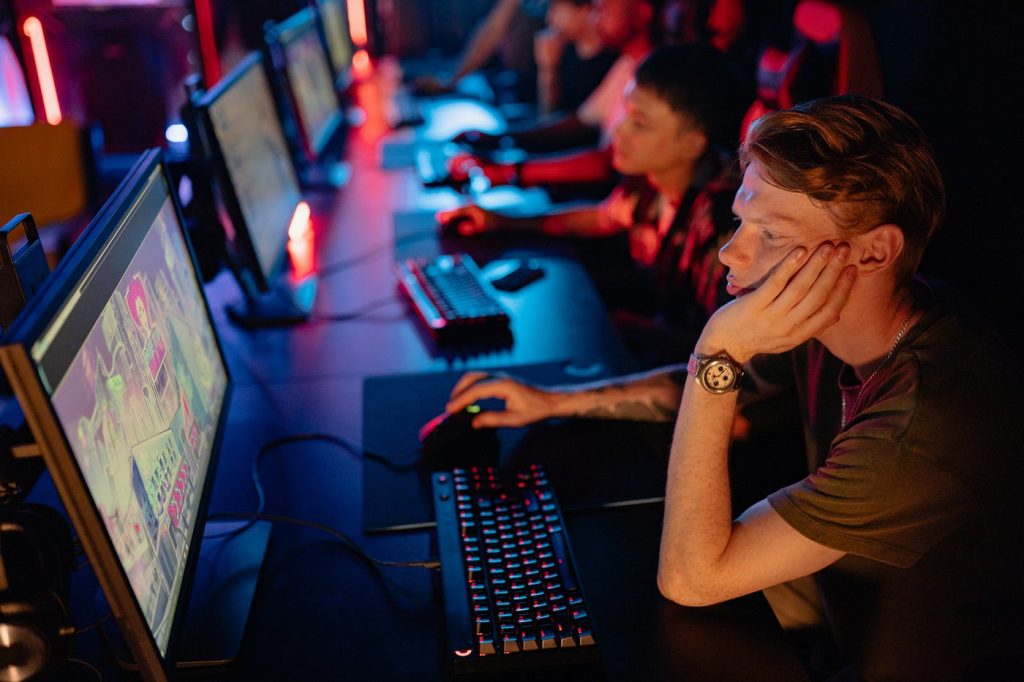Gaming has evolved from a hobby to a true lifestyle for many players around the world. What was once viewed as a pastime for a specific group of people has now become an integral part of daily life for millions. Whether it’s relaxing after a long day, socializing with friends, or even working towards personal goals, games offer much more than just entertainment. For modern gamers, gaming has become a multi-faceted experience that touches many aspects of their lives. But how do they integrate gaming into their everyday routines?
1. Gaming as a Social Hub
One of the biggest ways gaming has become a lifestyle is through its social aspect. Online multiplayer games and social platforms related to gaming have allowed players to connect with friends, meet new people, and share experiences. Gamers often spend hours talking, strategizing, and having fun with others, making it a critical way to socialize.
For many, gaming isn’t just about playing the game; it’s about the community that forms around it. Platforms like Discord, Twitch, and YouTube provide dedicated spaces for gamers to interact, share content, and collaborate with others. These platforms serve as digital hangouts where gamers can participate in live streams, watch competitive events, or discuss their favorite games. For those who game regularly, it’s more than just an activity—it’s a way to stay connected with friends and be part of a larger network.
2. Gaming for Stress Relief
In today’s fast-paced world, stress management is more important than ever. Many gamers incorporate gaming into their routine as a way to unwind and escape the pressures of everyday life. Games provide an engaging way to relax and temporarily disconnect from real-world worries. For some, gaming serves as a form of meditation, where the focus required in the game allows them to clear their minds and reduce anxiety.
From casual puzzle games to relaxing simulation experiences, gaming offers something for everyone looking to take a mental break. For others, sports-based games or competitive strategy titles can help them blow off steam and feel more energized after a busy day.
3. Gaming as a Creative Outlet
Another significant way gamers incorporate games into their daily lives is through creativity. Many modern games have open-ended designs that allow players to build, create, and design their own worlds or characters. Titles like Minecraft and The Sims have become virtual playgrounds where players can exercise their imagination and bring their ideas to life.
For some, gaming is an outlet for personal expression. Modding communities, where players create and share their own content, are thriving in many games, giving players the opportunity to showcase their creativity. Whether it’s creating custom levels, skins, or entire worlds, gaming is now a medium for self-expression just as much as a form of entertainment.
4. Gaming for Health and Fitness
Incorporating gaming into a healthy lifestyle is an emerging trend that’s gaining momentum. While traditional video games may have been associated with sedentary behavior, new types of games are changing that. Fitness-focused games like Ring Fit Adventure and Just Dance have introduced interactive ways to engage in physical activity while still enjoying the gaming experience.
Virtual reality (VR) gaming is also playing a role in this shift by providing best and physically engaging experiences that encourage movement. These games require players to be on their feet, move their arms, and even engage in full-body exercises, blending fitness with entertainment in a way that’s motivating for many players.
5. Gaming as a Form of Learning
Gaming also offers a unique opportunity for learning and personal development. Many players take advantage of the educational aspects of games to sharpen their skills or learn something new. From problem-solving and strategic thinking to learning about history or complex systems, gaming can be an enriching experience.
There are even games designed specifically to teach real-world skills, such as languages, mathematics, and coding. Many gamers have found that playing educational games is an enjoyable way to reinforce knowledge and learn at their own pace. For example, games like Duolingo incorporate learning into a fun, gamified environment, allowing players to improve their language skills while enjoying the process.
6. Gaming as a Career
For some, gaming is more than just a hobby—it’s also a career. With the rise of streaming platforms like Twitch and YouTube, many gamers have been able to turn their passion for gaming into a source of income. Streaming, creating content, and even participating in competitive gaming events are ways that some players incorporate gaming into their daily lives professionally.
Professional esports players, content creators, and streamers dedicate a significant amount of time to training, content creation, and maintaining their online presence. For these gamers, gaming is a lifestyle that extends beyond leisure and into their daily work.
7. Gaming and Time Management
With so many ways to engage with games, time management has become an important skill for gamers. Many players juggle work, school, and social lives alongside their gaming hobbies. To maintain a healthy balance, they often set aside specific times to game, ensuring it doesn’t interfere with other important aspects of their daily lives.
For some, gaming serves as a reward after completing tasks or achieving goals in their personal or professional lives. This creates a healthy structure where gaming is integrated as a form of recreation that complements their responsibilities.
Conclusion
For many, gaming is not just an activity, but a lifestyle. It has become an integral part of how they socialize, relax, stay fit, express creativity, and even earn a living. As technology advances and the gaming industry continues to evolve, it’s likely that gaming will only become more deeply embedded in our everyday lives. For players, gaming is not simply a pastime—it’s a dynamic and multi-dimensional experience that blends entertainment with personal fulfillment and social connection.

